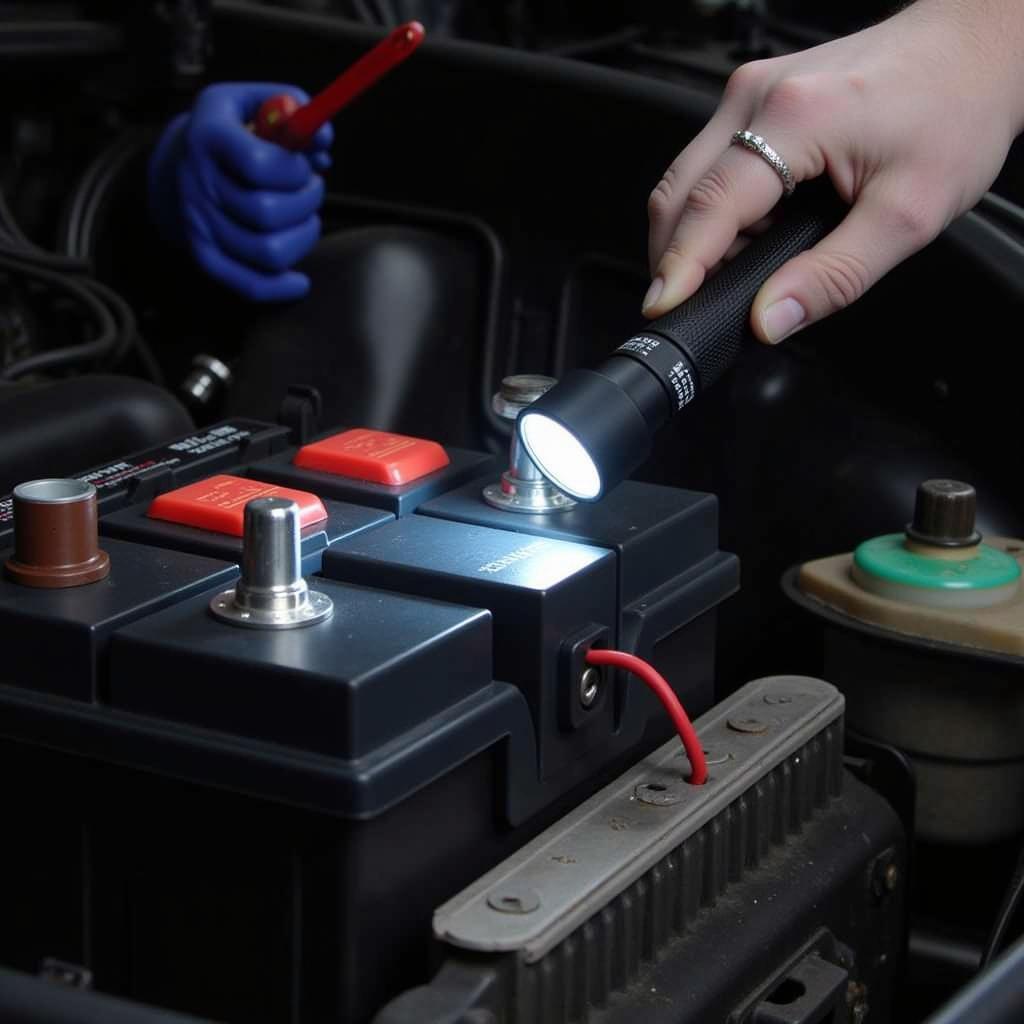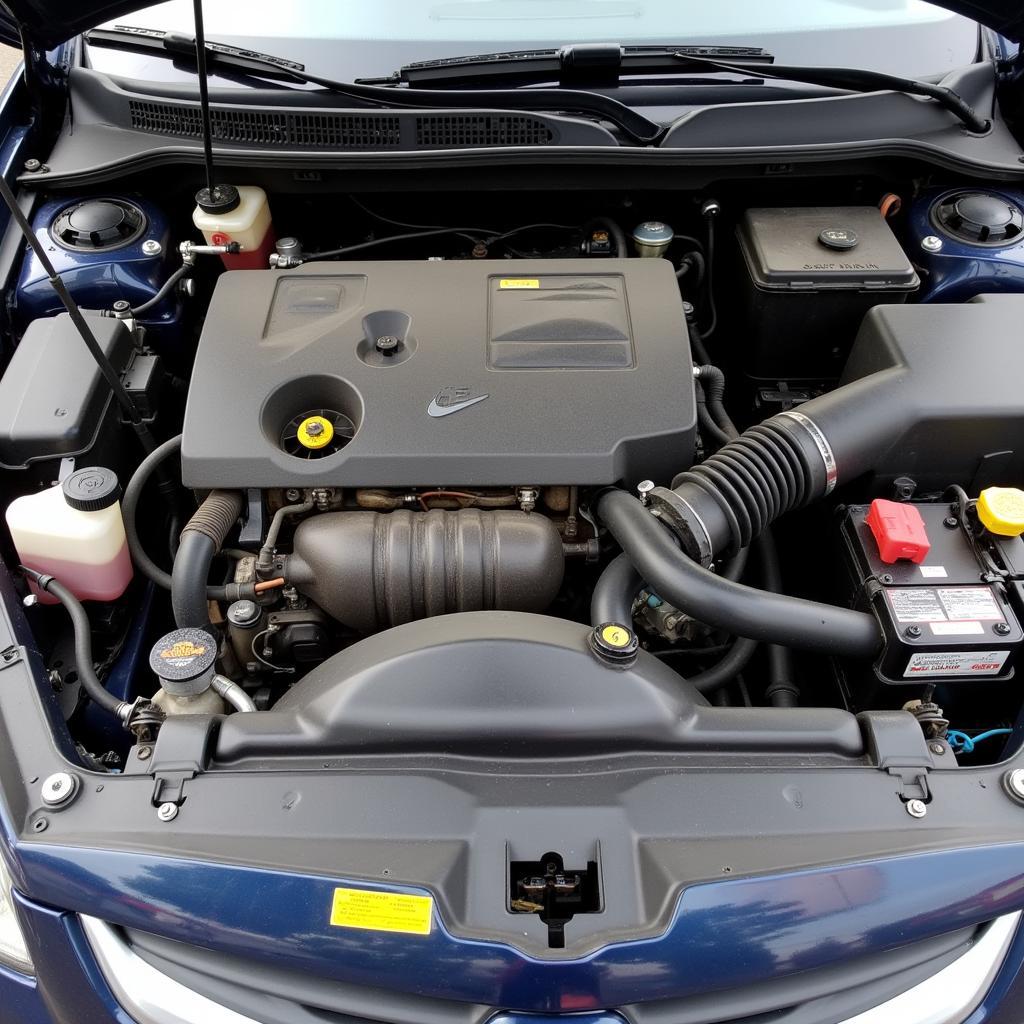Keeping your car in top condition requires regular maintenance. While you might have your annual service appointments scheduled, it’s crucial to perform a few basic maintenance tasks every month to ensure your car runs smoothly and safely. This article will guide you through a comprehensive checklist of monthly car maintenance tasks, so you can catch minor issues before they become major problems.
The Importance of Monthly Car Maintenance
Think of your car as an athlete. Regular exercise keeps them in top shape, just like consistent maintenance keeps your car running smoothly. Skipping monthly tasks can lead to bigger, more expensive problems down the road. For example, a simple oil change can prevent engine damage and extend the life of your car.
Here’s why monthly maintenance is essential:
- Early Detection of Issues: Routine checks allow you to identify small problems before they escalate.
- Enhanced Performance: Maintaining essential fluids and components ensures optimal engine performance.
- Safety & Reliability: A well-maintained car is a safe car, reducing the risk of unexpected breakdowns on the road.
- Increased Longevity: Regular maintenance can extend the lifespan of your car, saving you money in the long run.
Monthly Car Maintenance Checklist:
1. Check Fluid Levels:
- Engine Oil: This is arguably the most critical fluid. Use the dipstick to check the oil level. Add oil if necessary.
- Coolant: Keeps your engine cool, preventing overheating. Check the coolant level in the reservoir.
- Brake Fluid: Ensures your brakes work properly. Check the fluid level in the master cylinder reservoir.
- Power Steering Fluid: Smoothens steering. Check the fluid level in the reservoir.
- Windshield Washer Fluid: Ensure you have enough fluid to keep your windshield clean.
Expert Tip: “Don’t wait for the warning lights to come on. Regularly check your fluids, as warning lights might not always signal a problem until it’s too late,” shares John Smith, an experienced automotive technician with over 20 years in the industry.
2. Inspect Tire Pressure:
- Proper Inflation: Maintaining the correct tire pressure is crucial for safety, fuel efficiency, and even tire wear.
- Tire Condition: Look for any signs of wear, damage, or uneven wear patterns.
3. Examine Lights:
- Headlights, Tail Lights, Brake Lights, Turn Signals: Make sure all lights are functioning properly.
- Interior Lights: Check the dome light and any other interior lights.
Expert Tip: “Always test your lights in a well-lit area to ensure they’re functioning correctly, especially brake lights,” advises John Smith.
4. Check Battery:
- Terminal Connections: Inspect for corrosion or loose connections.
- Battery Charge: Use a voltmeter to check the battery charge, or have it checked by a mechanic.
 Inspecting Car Battery Terminals
Inspecting Car Battery Terminals
Expert Tip: “A clean and well-connected battery will start your car reliably and ensure optimal performance,” explains Emily Carter.
5. Inspect Wipers & Blades:
- Blade Condition: Ensure the wiper blades are free of cracks, tears, or excessive wear.
- Wiper Fluid: Top off the windshield washer fluid reservoir.
Expert Tip: “Replace wiper blades at least once a year, or sooner if they’re showing signs of wear,” recommends John Smith.
6. Clean Engine Compartment:
- Dust & Debris: Regularly clean the engine compartment to remove dust and debris.
- Hose & Belts: Check for cracks, wear, or looseness on the hoses and belts.
Expert Tip: “A clean engine compartment allows for better airflow and helps you spot potential problems sooner,” says Emily Carter.
 Clean Car Engine Compartment
Clean Car Engine Compartment
7. Interior Cleaning:
- Vacuum: Regularly vacuum the interior, including carpets and floor mats.
- Dashboard & Windows: Clean the dashboard and windows to improve visibility and maintain a clean look.
Expert Tip: “Keep your car’s interior clean for a more enjoyable driving experience,” suggests John Smith.
Additional Monthly Maintenance Tips:
- Air Filter: Check the air filter every month, and replace it every 6-12 months, depending on your driving conditions.
- Fuel Filter: Depending on your vehicle, it’s recommended to replace the fuel filter every 12-24 months.
- Spark Plugs: Check spark plugs for wear and replace them every 30,000-60,000 miles.
- Oil Filter: Change the oil filter every time you change your engine oil.
Conclusion
Performing these monthly maintenance tasks will keep your car running smoothly and safely. By catching minor issues early, you can save yourself from costly repairs and ensure your car lasts for many years to come.
Need help with your car maintenance? Contact AutoTipPro today for expert advice and reliable automotive services. We’re here to help you keep your car in tip-top shape.
Phone: +1 (641) 206-8880
Address: 500 N St Mary’s St, San Antonio, TX 78205, United States
FAQ:
- How often should I rotate my tires? It’s recommended to rotate your tires every 5,000-8,000 miles, or according to your car’s owner’s manual.
- What are some signs that my car needs a service? Some common signs include: check engine light illuminated, unusual noises, loss of power, reduced fuel efficiency, and strange smells.
- What are some common car maintenance myths? Some common myths include: you only need to change your oil every 3,000 miles, synthetic oil is better than conventional oil, and older cars don’t need regular maintenance.
- What’s the best way to clean my car’s interior? Start by vacuuming the interior thoroughly. Then, use a damp cloth to wipe down the dashboard and other surfaces. For stubborn stains, you can use a mild cleaner.
- Can I perform these tasks myself? Many of these tasks can be done by yourself, but some may require specialized tools or knowledge. If you’re not comfortable performing certain tasks, it’s always best to consult a professional mechanic.




Leave a Reply